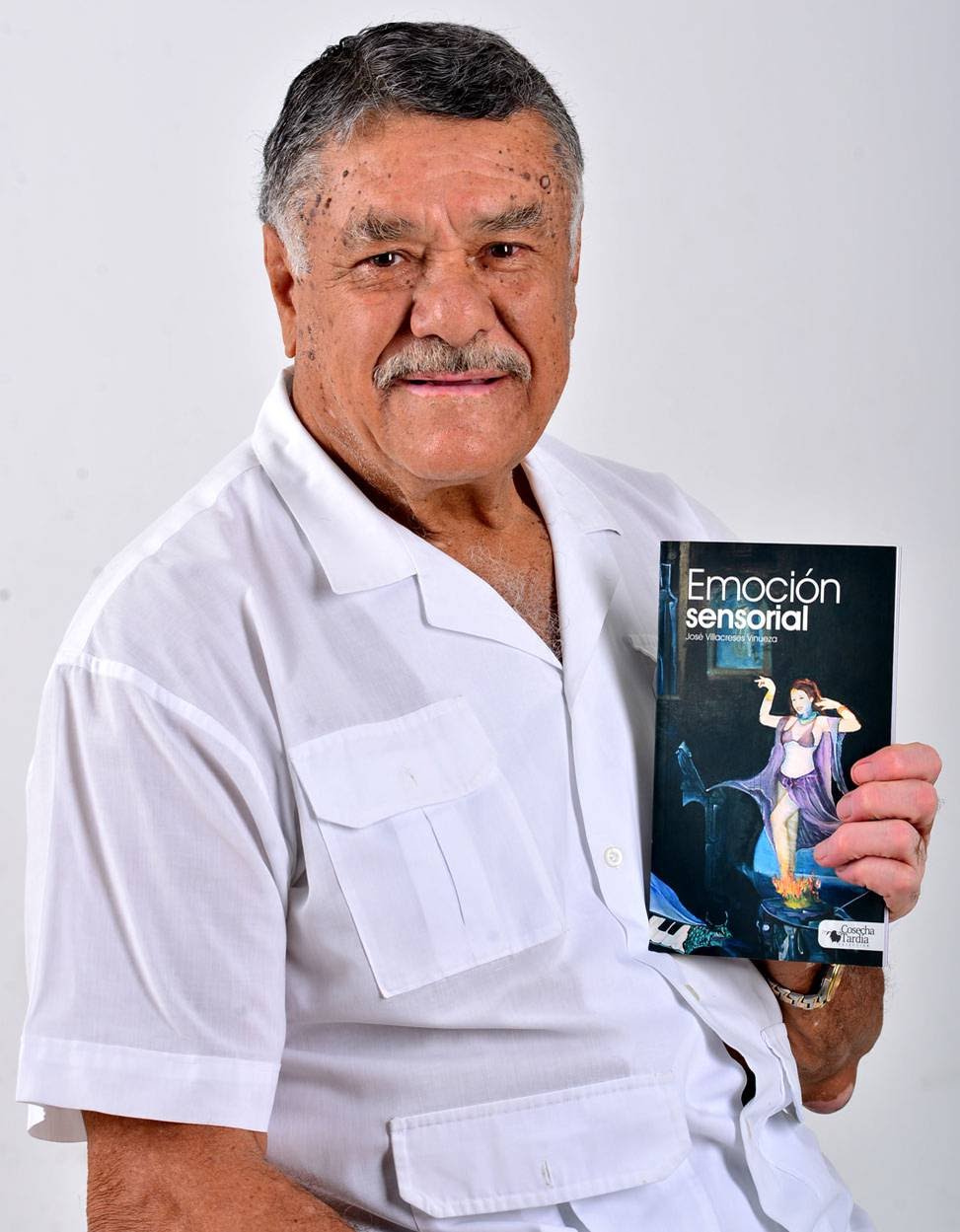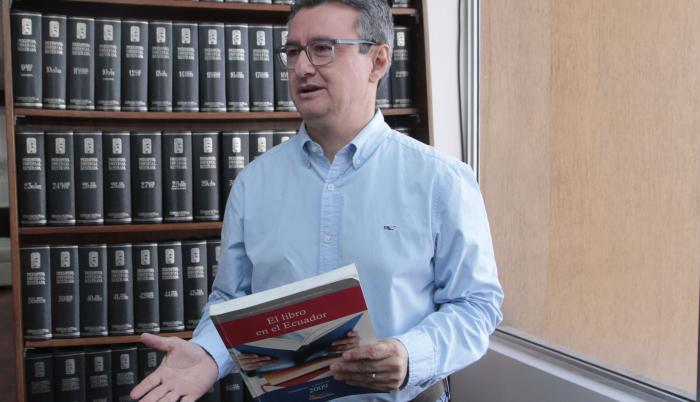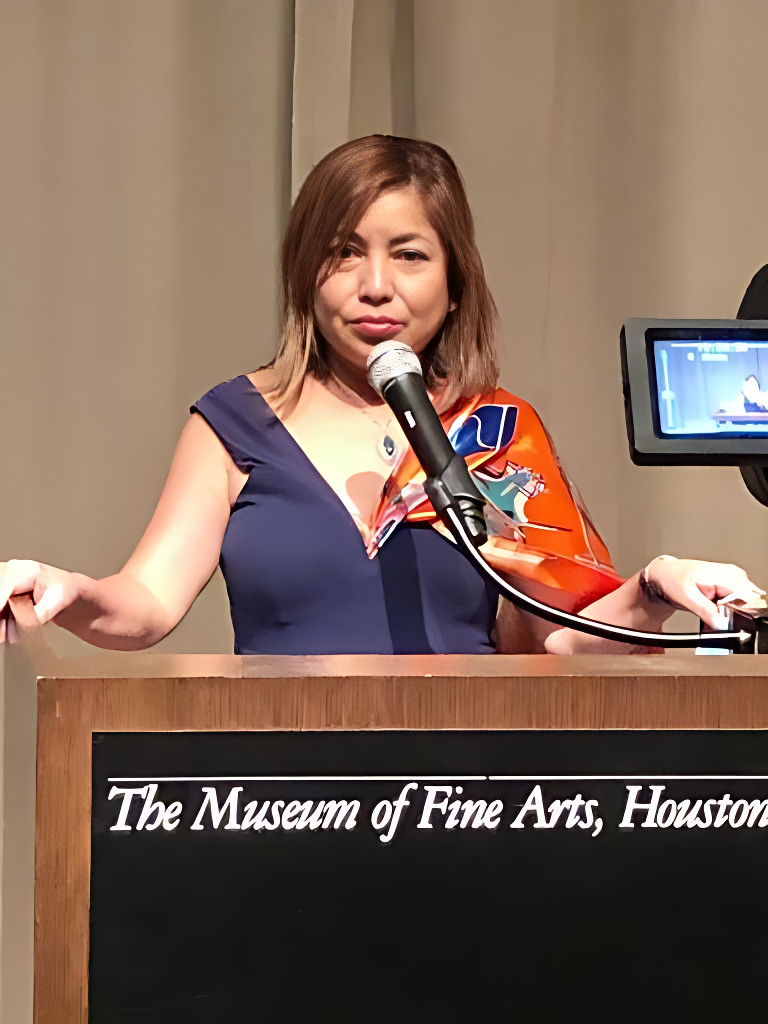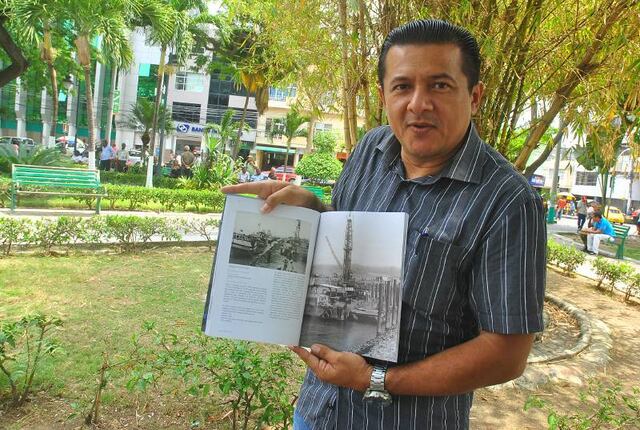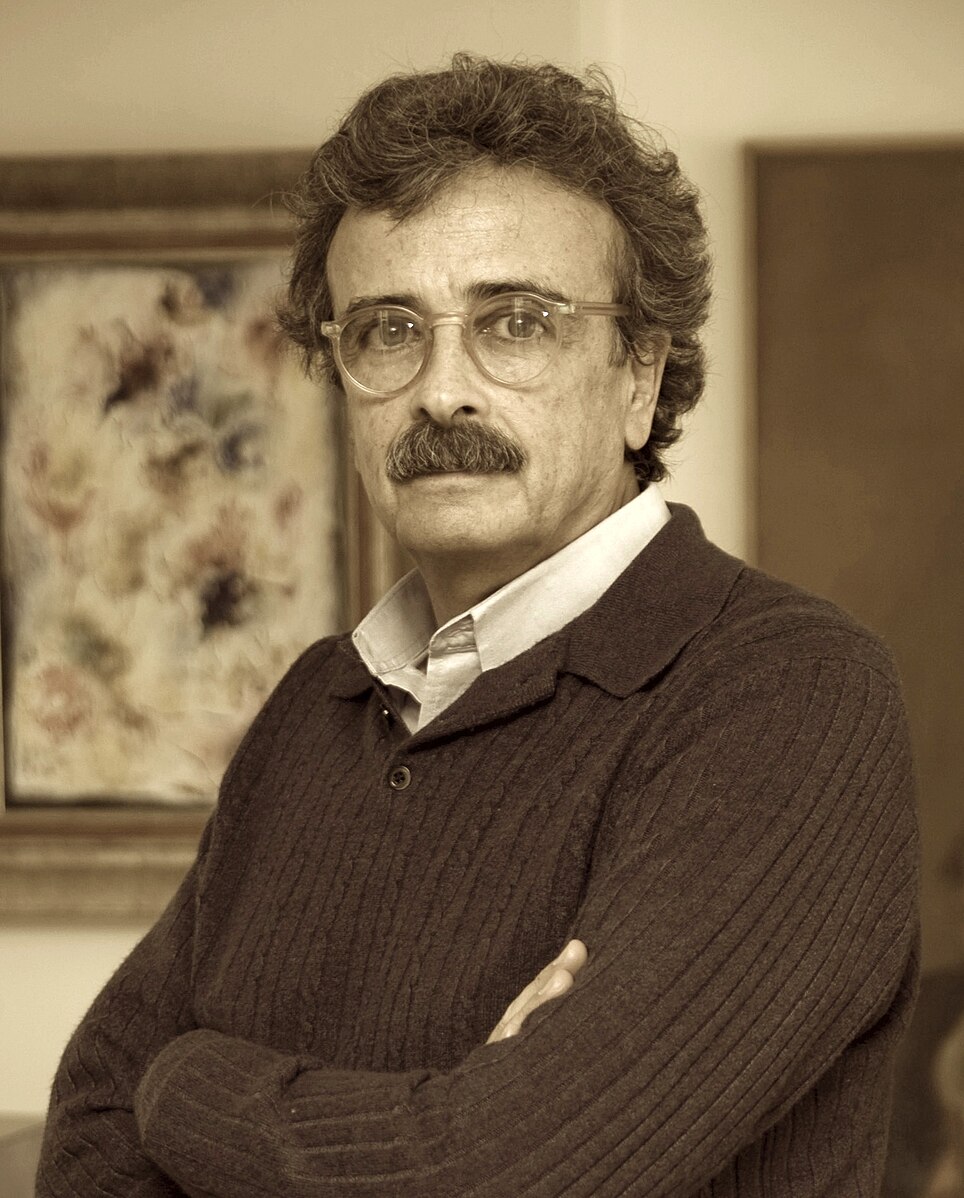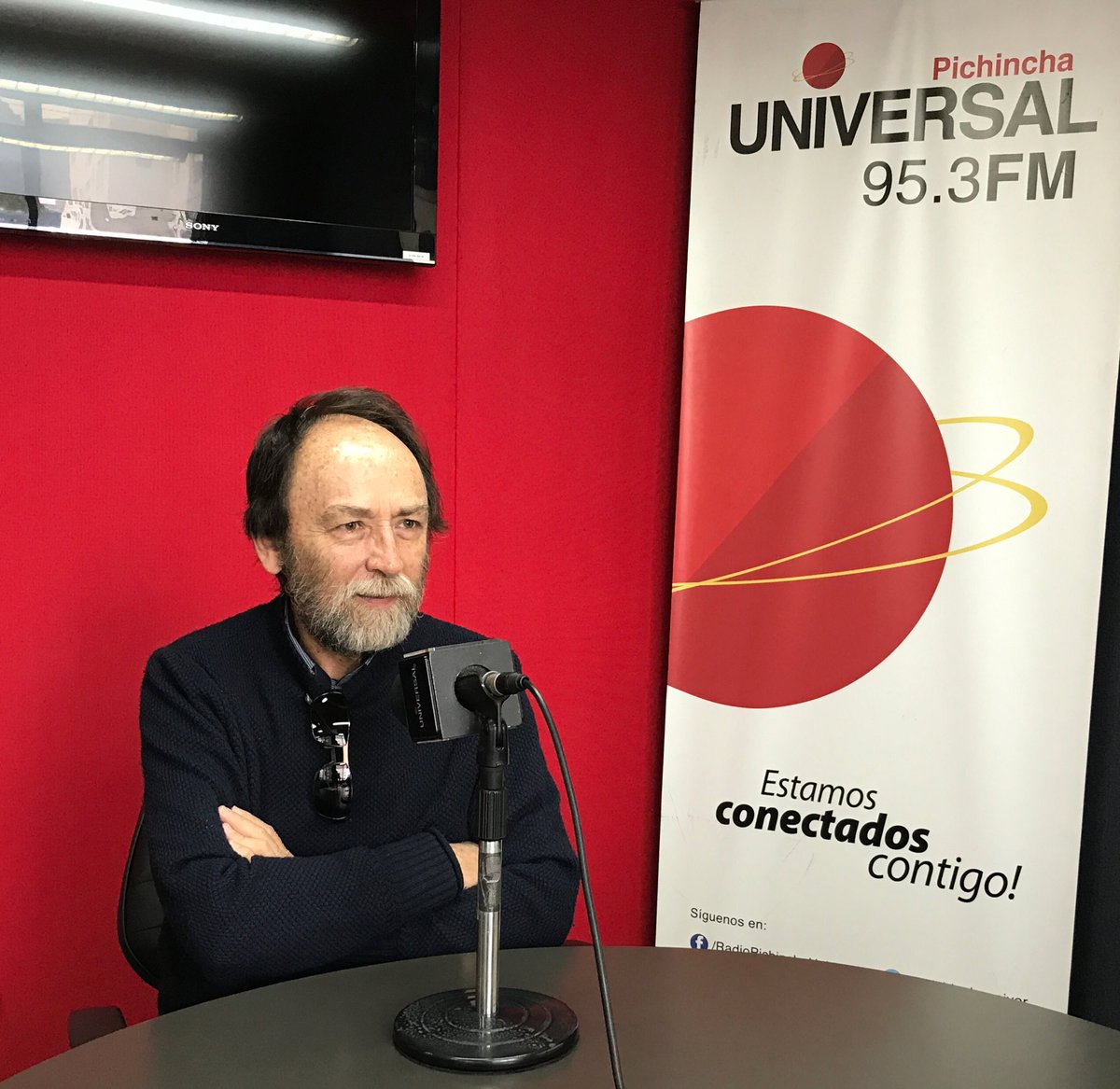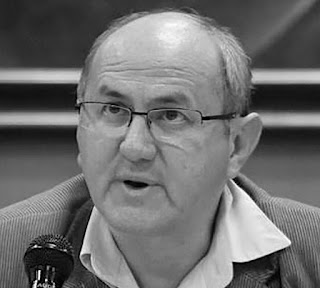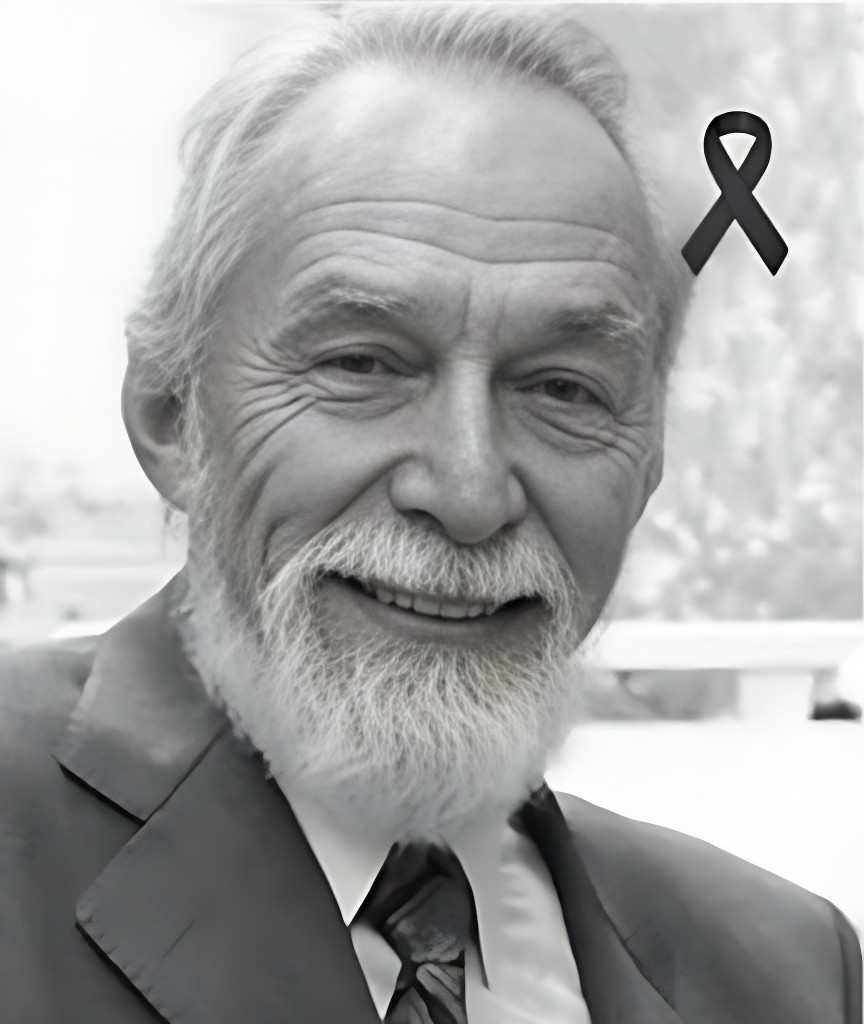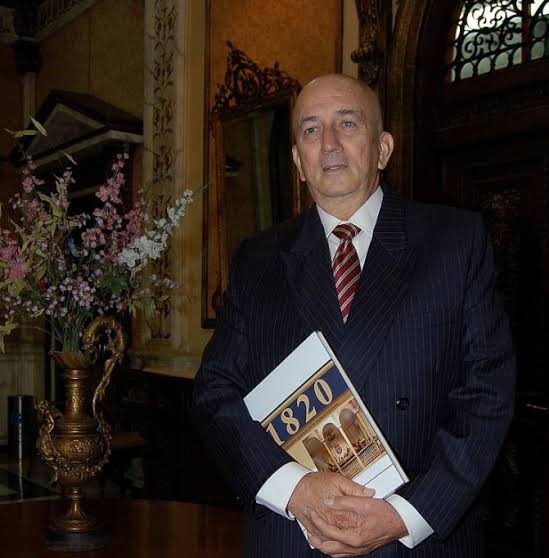José Villacreses Vinueza (Riobamba, Ecuador, 1940) is an Ecuadorian author, poet, chemical engineer, and former athlete, renowned for his contributions to literature, science, and sports. Over the years, he has authored several notable books, including “Nervios de Guitarra” (2010), “Manantial de Ensueños” (2014), “Emoción Sensorial” (2016), and “Mi Vida Entre Poemas” (2019), each reflecting his deep emotional and sensorial engagement with the world. Villacreses’s multifaceted career spans across academia, sports, and literary realms.
Continue reading “José Villacreses Vinueza”Category: 21st Century Writers
Vicente Robalino
Dr. Vicente Robalino (Ibarra, 1960) is an Ecuadorian poet, essayist, and educator known for his extensive work in literature and academia. With advanced degrees from UNAM and PUCE, he has authored several books of poetry and essays, contributing significantly to Ecuador’s literary scene. As a professor at PUCE and a guest lecturer at Universidad Andina Simón Bolívar, Robalino has played a crucial role in shaping the appreciation and understanding of Latin American literature among students and peers.
Continue reading “Vicente Robalino”Mark Honigsbaum
Mark Honigsbaum (London, 1960) is an esteemed journalist and historian, renowned for his exploration into the historical and contemporary implications of infectious diseases. His connection to Ecuadorian literature comes through his riveting book, “Valverde’s Gold: In Search of the Last Great Inca Treasure” (2004), a work that delves into the heart of Ecuador’s Llanganati National Park in search of the last great hoard of Inca gold. This book not only captures the imagination with its tale of adventure and pursuit but also firmly anchors Honigsbaum’s contribution to literature related to Ecuador.
Continue reading “Mark Honigsbaum”Fabián Luzuriaga
Fabián Luzuriaga, an economics graduate with a master’s in Business Administration, has been a transformative leader in Ecuador’s publishing sector since 1999. Leading key projects and entities like the Fondo de Cultura Económica Ecuador and USFQ Press, and serving multiple terms as the president of the Ecuadorian Chamber of Books, Luzuriaga has focused on digital innovation, intellectual property rights, and engaging the community with literature. His efforts are pivotal in modernizing the publishing industry and promoting Ecuadorian literature’s growth and reach.
Continue reading “Fabián Luzuriaga”Lady Párraga
Lady Párraga (Manabí), is an Ecuadorian poet and committed educator, acclaimed for her profound exploration of themes such as memory, loss, and the intricate dynamics of human emotion. Her significant contributions to literature are reflected in her compelling works, including “El vuelo de mi alma” (2005), “Flor de lis” (2012), “Cristales de esperanza” (2017), and her latest reflective collection, “Somos infinitos” (2023). Párraga’s insightful and evocative verses have secured her a prominent place in various national and international publications and anthologies, marking her as an influential and esteemed figure in Ecuador’s rich literary tradition.
Continue reading “Lady Párraga”Elizabeth Quila
Elizabeth Quila (Guayaquil, September 19, 1964) is an Ecuadorian writer based in Houston, Texas, renowned for her remarkable contributions to literature and the arts. Quila’s work spans various domains including literature, psychology, and cultural management. Her diverse achievements reflect her commitment to promoting Ibero-American literature globally and utilizing art as a medium for psychological healing and social engagement. Her novel, “El cadáver que envejece dentro de su tumba” (The Corpse That Ages Inside Its Grave) won 3rd place in the Latino Book Awards of 2020.
Continue reading “Elizabeth Quila”José Páez Gracia
José Patricio Páez Gracia, an Ecuadorian author and historian, has emerged as a pivotal figure in documenting the rich history of Esmeraldas, a province in Ecuador. His book, “Esmeraldas del ayer,” published by the Ministry of Culture and Heritage and the National Institute of Cultural Heritage in 2019, spans 141 pages and is enriched with around 130 photographs. Páez’s work provides an insightful look into the region’s past, highlighting key historical events and figures such as Luis Vargas Torres and Eloy Alfaro. His dedication to this project, rooted in his family’s legacy of educators, showcases his commitment to preserving and promoting the cultural heritage of Esmeraldas for future generations.
Continue reading “José Páez Gracia”Arístides Vargas
Arístides Vargas (Córdoba, Argentina, 1954) is an acclaimed Argentine-Ecuadorian playwright, whose work delves into the profound impact of exile. Forced to flee to Ecuador in 1975 at 20, escaping persecution by the Triple A, he found solace in theater. Vargas co-founded Malayerba in 1979, providing a haven for fellow exiles. His plays, over 20 in total, explore the trauma of violence and displacement through surreal, non-realistic narratives infused with elements like playfulness, forgetfulness, dreams, and somnambulism. Vargas blends nostalgia with humor, celebrating laughter as a healing force. In 2021, directors staged his works, showcasing his ability to address exile and Latin America’s history universally. His contributions continue to illuminate collective memory and historical understanding.
Continue reading “Arístides Vargas”Diego Cornejo Menacho
Diego Cornejo Menacho (Quito, March 18, 1949) is a versatile Ecuadorian artist. He’s a writer, painter, and journalist. He has been a professor, columnist, and deputy director for newspapers, and he even directed regional news. Notably, he won the “Joaquín Gallegos Lara Prize” in 2008 for his novel “Miércoles y estiércoles” and received the “Gran Premio SIP-Libertad de Prensa” in 2013. He’s also been honored with the “Eduardo Kingman” Cultural Merit Decoration in 2014. Cornejo Menacho is a celebrated figure in Ecuadorian literature, with a collection of novels and journalistic works reflecting his deep connection to Ecuadorian culture.
Continue reading “Diego Cornejo Menacho”Roque Espinosa
Roque Espinosa Chávez (1951) is a distinguished historian and author, renowned for his in-depth and critical analysis of Latin American history, with a particular focus on Ecuador. His expertise is not limited to historical analysis; he has also made significant contributions in the realm of fiction, as evidenced by his work “Me descambias la vida,” which was honored with the prestigious Premio Joaquín Gallegos Lara. This recognition showcases his versatility and skill in both academic and literary domains. His work, characterized by meticulous research and theoretical rigor, has significantly contributed to the understanding of regional economic and social history. Notable publications include “Hacienda, comunidad y concertaje” (1986), “Parentesco y reproducción en Manabí” (1990), and “Las fronteras con Colombia” (2008). His book “Desmemoria y olvido: la economía arrocera en la Cuenca del Guayas 1900-1950,” a refined version of his Cum Laude doctoral thesis, stands as a testament to his scholarly excellence. This work delves into the rice industry in Ecuador, illuminating a previously understudied aspect of the nation’s economic and social history. Espinosa’s ability to intertwine economic data with cultural and social insights has not only enriched academic discourse but has also brought to light the lesser-known facets of Ecuador’s past. His dedication to uncovering and critically analyzing historical narratives has earned him recognition and respect in academic circles.
Continue reading “Roque Espinosa”Raúl Serrano Sánchez
Raúl Serrano Sánchez (Arenillas, December 17, 1962) is a multifaceted figure in the literary world, known for his roles as a writer, literary critic, essayist, journalist, and university professor. He has made significant contributions to Ecuadorian literature, with several published works including short stories, a novel, and academic essays. His notable works include “Las mujeres están locas por mí” (a collection of short stories), and “Un pianista entre la niebla” (a novel). Sánchez’s literary prowess has earned him various accolades such as the Joaquín Gallegos Lara Prize in 1997, the National Angel F. Rojas Novel Prize in 2015, and the Manuela Sáenz Prize in 2014. He is an active academic, currently teaching at the Universidad Andina Simón Bolívar in Ecuador, and has contributed to various editorial boards and literary journals, showcasing his deep involvement in the literary scene. Sánchez’s work extends to editing and providing critical introductions for other writers’ works, emphasizing his comprehensive engagement in the literary field.
Continue reading “Raúl Serrano Sánchez”Galo Galarza Dávila
Galo Galarza Dávila (Guaranda, 1956) is a renowned Ecuadorian diplomat and accomplished writer, whose career spans several decades of influential work in international relations and literature. Educated at the prestigious Pontificia Universidad Católica and Universidad Central del Ecuador, he holds degrees in Law and International Sciences. Galarza Dávila’s diplomatic journey is marked by his tenure as the Ecuadorian Ambassador to Mexico from 2006 to 2012 and pivotal roles in Ecuador’s Ministry of Foreign Affairs, including Subsecretary positions. As a writer, he has contributed significantly to Ecuadorian literature with works such as “En la misma caja” and “La Dama es una trampa.” These publications not only showcase his narrative prowess but also reflect his deep insights into social and political issues. His literary excellence has been recognized with various accolades. Galarza Dávila’s distinguished service earned him international honors, including Mexico’s Order of the Aztec Eagle, the highest award for foreigners. His career encapsulates a blend of diplomatic finesse and literary acumen, making him a prominent figure in Ecuador’s cultural and political landscape.
Continue reading “Galo Galarza Dávila”Jaime E. Rodríguez O.
Jaime Edmundo Rodríguez Ordóñez (Guayaquil, April 12, 1940 – Los Angeles, USA, June 27, 2022) was a celebrated Ecuadorean-American professor, researcher, and historian. His work focused on the history of New Spain, Mexico, the Presidency of Quito, and the independence period in Hispanic America. Rodríguez Ordóñez’s notable contributions to historiography include his profound analysis of the impact of Spain’s Constitutional Monarchy and the independence movements in Latin America. His works, such as “Nosotros somos ahora los verdaderos españoles” and “The Forging of the Cosmic Race,” offer insightful reinterpretations of colonial Mexico and the emergence of Hispano-American identity. He held academic positions at prestigious institutions, including the University of California, Irvine, and was a member of the National Academy of History of Ecuador and the Mexican Academy of History. Rodríguez Ordóñez’s unique perspective on the interconnectedness of Hispanic America with global events during the Atlantic Revolutions significantly enriched the understanding of Latin American history and its complex journey towards independence and nation-building.
Continue reading “Jaime E. Rodríguez O.”Efrén Avilés Pino
Efrén Avilés Pino (Guayaquil, February 26, 1947 – Ibidem, December 31, 2009) was a renowned Ecuadorian historian, writer, and university professor. Educated at the University of Guayaquil, he significantly contributed to Ecuador’s historical research, emphasizing the Province of Guayaquil’s role in national independence. His acclaimed works include the “Enciclopedia del Ecuador” and “Historia del Ecuador.” Also notable in the music industry, Avilés composed the anthem for Club Sport Emelec. A member of the National Academy of History, he resigned amid controversies over historical perspectives. Honored with the Merit of Commandeur in 2002, his legacy in Ecuadorian history and culture is enduring.
Continue reading “Efrén Avilés Pino”Jenny Estrada
Jenny Estrada, or Jenny María Estrada Ruiz (Guayaquil, June 21, 1940 – February 9, 2024) was an eminent Ecuadorian writer, journalist, and historian. Her impactful career began at “El Universo” in 1968, where she was the first woman to serve as an editorialist, pioneering female representation in Ecuadorian journalism. Estrada’s work, deeply rooted in socio-political and cultural analysis, reflects her commitment to uncovering Ecuador’s diverse narratives, particularly the roles and challenges of women. Her notable literary contributions include “Las mujeres de Guayaquil, siglo XVI al XX” and “Matilde Hidalgo de Prócel, una mujer total,” which highlight women’s significant but often overlooked contributions to Ecuadorian history. Estrada’s dedication extends beyond writing; she was instrumental in founding the “Museo Municipal de la Música Popular Julio Jaramillo,” preserving Ecuador’s rich musical heritage. Her esteemed memberships in the National Academy of History of Ecuador and the Spanish Royal Academy of History, along with numerous cultural merit awards, mark her as a pivotal figure in shaping Ecuador’s cultural and historical consciousness. She worked as a columnist under the pseudonym María Ignacia.
Continue reading “Jenny Estrada”
